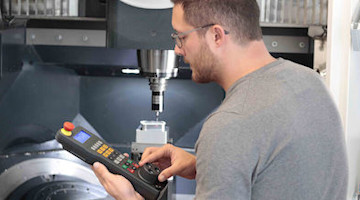On Thursday, April 16, 2020, AMT hosted a free webinar on the Main Street Lending Program. This exciting new program aims to provide vital support to small- and medium-sized businesses affected by the coronavirus pandemic. AMT CFO Rebecca Stahl moderated this discussion with panelists Jack Lavoie and Michelle Garcia Schulman, Partners, Cooley LLP, and Kathleen Sifer, Managing Director, Grant Thornton Public Sector LLC. Lavoie and Schulman had joined us previously for a webinar discussion on the Payroll Protection Program which can be accessed here.
What is the Main Street Lending Program?
Established by the Federal Reserve Board, the Main Street Lending Program aims to generate liquidity in the lending market to small- and medium-sized businesses. The recently passed CARES Act provides $75 billion in funding which the Fed intends to leverage into $600 billion of loans to qualified businesses. These loans will be executed by standard financial institutions like banks and savings and loan associations.
The MSLP is comprised of two facilities: The Main Street New Loan Facility, and the Main Street Expanded Loan Facility. New loans would originate on or after April 8, 2020; expanded loans would be modifications to loans existing before that date.
Who is eligible?
U.S.-created or U.S.-organized businesses with significant U.S. operations with up to 10,000 employees – or whose annual revenue did not exceed $2.5 billion in 2019 – and who are solvent and in good financial standing are eligible to apply for these loans. PPP borrowers are not precluded from the MSLP. Potential borrowers should review any restrictions from existing loans before applying for a Main Street loan. Businesses must attest they are applying due to the coronavirus pandemic’s negative impact on their business.
The good stuff.
Loans under the MSLP carry very low interest rates. These rates are based on the adjustable Secured Overnight Financing Rate (SOFR) plus 250-400 basis points. Currently, the SOFR rate is 0.1%. The minimum amount to borrow is $1 million; the maximum depends on borrower’s credit worthiness, including multiples of the business’ EBITDA. Amortization of principal and interest is deferred for one year, and the loan matures in four years.
The bottom line.
While there are significant requirements and attestations borrowers must meet, the terms and conditions make loans issued through the MSLP quite attractive. Barring the passage of more legislative stimulus acts, the MSLP functions on a first-come-first-served basis. Because of the attractive terms, banks may only finance existing clients. Please contact your lenders as soon as possible to explore your options.
The MSLP is just one of many federal stimulus programs available during the COVID-19 pandemic. Kathleen Sifer provided a document put together by Grant Thornton outlining the variety of government funding and tax opportunities available to U.S. businesses. It can be found here.
For more information on the Main Street Lending Program, eligibility, fees, required attestations borrowers must meet, the lively and very informative Q&A session, and much more, please refer to the webinar video and other documents here.




